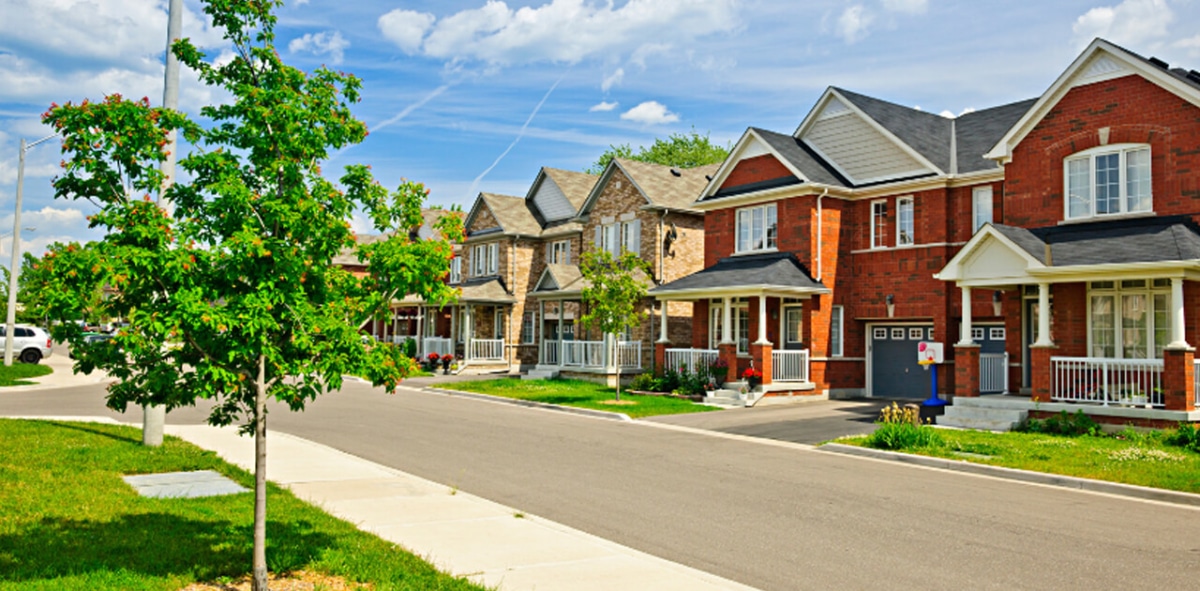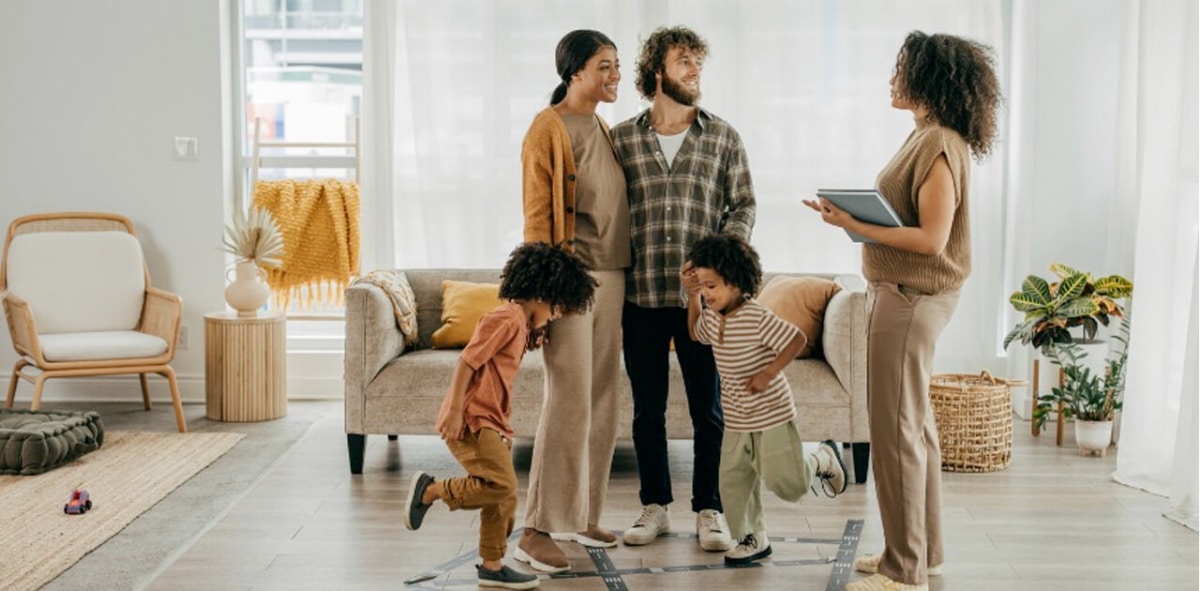Losers: People Trying to Buy a Home Right Now – Austin Texas Living
If you’re thinking about buying a home in the next few months or the next year, this blog post is for you. The Federal Reserve has hiked up its benchmark interest rate by 0.75%. What does this mean for Americans trying to buy things, save money, and generally operate in the world of banks and commerce? We will talk about some of that, but this blog will primarily focus on what this means for housing for both buying and renting.

#image_title
NPR just released a great article summarizing what the interest rate hike means, who it will affect, and what some repercussions are. I will summarize their article and interject how this directly affects the Austin real estate market.
Inflation is driven by strong consumer demand, which we have seen everywhere in the real estate market, specifically with Austin Real Estate. By raising interest rates, which makes things more expensive, the Fed is hoping to dampen American’s willingness to spend money.
The Fed said it will continue to raise rates as needed throughout the year if the inflation doesn’t improve. Its next meeting is going to be in late July. So set your calendars and get ready for that potential shitstorm.
Generally speaking, as the Federal Reserve raises its benchmark interest rate, everything else in the economy that involves interest rates is affected somehow, and that happens to be most things. Credit cards, student loans, home and car loans, banking, savings accounts, everyday operations of businesses, you name it. Most Americans have at least one of these things. This affects all of us.
Let’s clear something up. The Fed’s interest rate isn’t directly tied to mortgage rates, but mortgage lenders move their rates up and down based partly on what they expect the Fed to do. With inflation being so bad, mortgage rates have been rising all spring. The average 30-day rate is well above 6%, but earlier this year, a 30-day fixed-rate mortgage could have been around 3.25%.
In September last year, I refinanced my house for 2.3%. So, given a loan of $500,000, the interest rate has turned a monthly mortgage payment of about 2100 into about 3000 in just a few months. And that’s just for the principal and the interest that does not include property taxes, homeowners insurance, your HOA mortgage insurance, or any of that. I use mortgagecalculator.org for these calculations.
So the chief economist at Redfin says housing is getting less affordable for everyone at every level, affecting everyone. The rapid increase in cost has already priced some potential buyers out of the market. Mortgage applications for home purchases in June were down more than 15% compared to last year, according to the Mortgage Bankers Association.
I’ve been talking to some of my lender friends and partners, and in a few weeks, they have gone from being crazy busy. I can’t breathe to stare at the phone, waiting for it to ring.
So here’s a side note. Mortgage rates have historically been higher, especially in the 1980s when rates topped 15%. It was during the Fed’s effort to fight the inflation of the seventies. Still, home prices are higher than ever, having risen dramatically in so many areas over the past two years, specifically in Austin. Right after COVID-19 hit, we had about six weeks where people weren’t sure what was happening. Is the market going to tank? What’s happening? And then it just exploded and has never looked back.
Economists have mixed emotions about what all this means for the housing market. Some say home prices will hold steady, while others forecast a price drop. I will say that in Austin, there is a wait-and-see period. Right now, we are seeing many homes decrease in price. They’re not selling in three days. They take a little longer to sell, and not everyone gets multiple offers. At a listing a couple of weeks ago, where we did go under contract within three or four days, we didn’t get as many offers as we thought.
The Fed suggests that prospective home buyers wait to see if prices stabilize. They say if you’re a home buyer or a young person looking to buy a home, you need a bit of a reset. We need to get back to a place where supply and demand are back together, inflation is down again, and mortgage rates are low. So yes, that is something that we need to see in Austin.
We discussed supply and demand, which is a seller’s market versus a buyer’s market. We’ve been in a crazy, insane seller’s market for the past two years. What I tell my folks now is we went from being in a crazy seller’s market to a strong sellers’ market. This was just like three weeks ago. Now, I’m saying we’re in a heavy seller’s market. It’s decreased significantly in the past six weeks, even the past three weeks, because of the interest rate change.
That means we’re starting to see more homes on the market. We’re getting more inventory of homes, and really, what that’s referring to is if no more homes came on the market today, how long would it take us to sell the homes for sale? In a balanced market, it will take us about six months to sell the homes for sale today.
In Austin, we’ve had about two weeks of inventory. It would take us two weeks to sell the homes for sale today, not two months or two weeks. So when we talk about a balanced market of six months, Austin was at two weeks. We still have quite a ways to go.
As of May, we just got reports back for what was happening in May. It would take us a month to sell all the homes in May. Again, we still have a very big gap from what is considered a balanced market, where it takes about six months to sell all the homes. We’re at about one month right now. With this recent change in interest rates, we might be at two months. We still have four months to go before we are at what’s traditionally considered a balanced market.
The intent is to return the housing market to a more balanced market where buyers and sellers are closer to being on the same playing field. We are at a point where sellers are holding all the cards. Buyers were lucky enough to get a house even after offering 30% over asking and giving away the farm on terms and conditions.
Who are the winners right now? The winners are people who have money in their savings accounts with interest rates so low for the past few years banks had little reason or little ability to offer any meaningful interest rates on personal savings accounts where you might keep your money for an emergency fund or a down payment on a home.
Ever since the pandemic began, the Fed dropped the interest rates to get people more excited about buying homes, but that’s interest rates on everything. The average interest rate for a typical savings account hovered around 0.06%, not 6%, not 0.6%, 0.06%. 0.06% was the average interest rate for your personal savings account. With the increased benchmark rate, interest accounts are ticking up, too.
Some banks, especially internet banks like Ally, are starting to offer interest rates of up to 1% or more for their savings accounts. This is great, just from a savings aspect alone. Still, another reason why the winners are the people with money in their savings accounts is a lot of people are in an even better position to buy a home right now because they’re either paying cash or putting down a large percentage for their down payment.
Yes, savings is good in and of itself, like we should be making interest on the money we’re saving. The folks who have been able to save are in a much better position in the real estate market because there are fewer buyers, and we will talk about that a little bit more.
A lot of buyers have dropped off. Due to the new interest rates, they cannot afford to buy any home or the one they need that meets their family’s needs.
So, the folks that are in a great position are the people that are still in the market. If you’re still in the market to buy a home, fantastic. You just dropped so much competition, and it will be a lot easier for you to buy a home right now. Folks with enough cash and people with enough money either pay cash or put down a significant chunk for their down payment.
So when the Fed announced the increase in the benchmark rate, and we then saw mortgage rates go up, I reached out to all of my clients who were planning on buying a home in Austin by the end of this year, and this is what I told them. The interest rate hike is a double-edged sword. One, it’s going to kick a lot of people out of the buyer’s pool. This is just an inconvenient truth. Many people cannot afford to buy a home here, or they can only afford a home that doesn’t meet their needs.
For someone with two kids who works from home and needs a three-bedroom home with an office, that might’ve put you in a specific price range, especially when we considered the neighborhood you were considering.
Now, with interest rates, maybe in that same neighborhood, you can only afford a two-bedroom, two-bath, or if you want that three-bedroom plus an office, you’ll have to go into a completely different neighborhood.
It’s going to drop people out of the market, or it’s going to make people compromise on what they’re looking for in a home and what neighborhood they want to be in. On the flip side of that double-edged sword, buyers staying in the pool who will continue to buy a home will have more listings and less competition from other buyers because fewer buyers are in the market now. And because we’re getting a higher inventory of homes.
Most of my clients wrote back and told me they planned on paying cash, so they weren’t worried about the interest rates. Some are selling their current home and plan on putting the proceeds toward their new home, which means a very low mortgage. Still, some are making a significant change in their life. Retirement, empty nesters, moving closer to kids; they are moving no matter what. So those are the people who are still moving to Austin and buying homes in Austin, other than those who are moving here for work and all the different reasons.
So, let’s return to the part where many buyers are getting kicked out of the buying pool. Here’s an example. I want to go by your maximum monthly budget. That’s a more realistic measurement of what you can afford. So, let’s set your max monthly budget at 2,500, including principal interest, taxes, and insurance.
For 2,500, you can afford a home that costs about 500,000 if you put 20% down to avoid mortgage insurance. So that is with an interest rate of 6%, whereas just a few months ago, with that monthly payment of 2,500, you would’ve been able to buy a home that costs 650, with a downpayment of 20% and interest rates of 3.2%. This was just a few months ago. That is a huge difference in price regarding the overall home quality, location, condition, age, and amenities. So you can see how some people just won’t be able to afford the kind of home they need under these new interest rates.
Many people will continue to rent, which will drive up demand for the rental market and increase the prices. So what sucks for those people that were so close to owning a home, so close to getting out of the rental maze. The biggest issue is that it will create an even broader wealth gap.
You can see that the people who already had money and the means to put down cash or a sizeable down payment on their house will continue to gain wealth through their real estate investment. Now, it’s even more challenging for the folks who don’t have wealth and financial stability to get their hands on it and get just a little piece of this cheese.
That’s what upsets me so much about this change. This will affect many people in the long term because owning a home is one of the best ways to build wealth in this country, and we’re either delaying it or preventing it for so many people.
In the meantime, that means there are fewer buyers in the market. The people who already have the cash and wealth can just continue to buy more homes, turn them into investment properties, and make them available for renters instead of something that renters can buy.
Aside from the housing market and widening the wealth gap, what does this mean for the economy? In a note to clients, Wells Fargo economists just wrote that we now judge that recession next year is more likely than not. A survey of economists published this week by Financial Times, the University of Chicago, found that most expect a recession to begin sometime next year.
That means the US could see widespread layoffs even as inflation is still high and Americans are paying higher prices for food and gas. So, who are the winners then? Hopefully, all of us will be in the long term. With the interest rate hikes today and down the road, the Fed aims to bring the inflation rate down to 2% while keeping unemployment around 4%.
Now, it’s currently at 3.6%. So they said, we’re not looking to have a higher unemployment rate, but I would look at that as a successful outcome. And I think they mean I would look at the employment rate being 4% as a successful outcome, not necessarily like, if more people are laid off, that’s successful. There is a difference in the wording.
While economists are starting to feel pessimistic about the odds of avoiding a recession, it’s still possible. Americans just had to be patient while things played out. Another economist said that monetary policy takes time to act. There’s a long lag between the Fed moves this week when it moved before and when that trickles through to the economy.
So, it can take up to a year before the full effect of the Federal Reserve interest rate hike is felt in the real economy. But I have to tell you, it’s being felt here in Austin right now. Almost everyone I talk to who is connected to or adjacent to the real estate world is feeling it immediately, and we are already seeing it in the MLS.
We are already seeing tons more homes on the market. We’re seeing so many homes with price reductions. This hasn’t taken a year to trickle into the Austin real estate market. It is happening right now. There is a palpable difference in the air out here. How long it will last, no one knows. But what is certain is that change is already here. It’s not going to happen in a year. It’s happening now.
If you’re one of the people who were not kicked out of the buyer’s pool and you’re still planning to move to Austin and buy a home here, reach out to me, and let’s talk if you’re still doing this.















